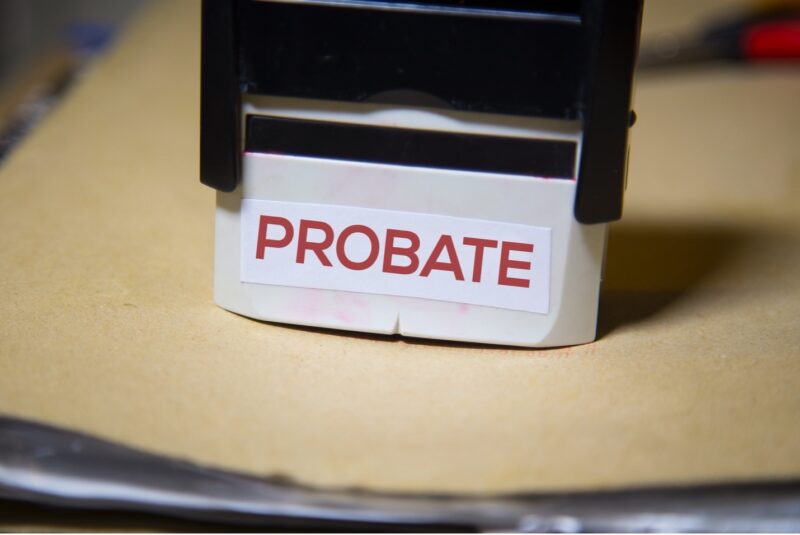When you are just starting your business, the last thing you want to do is think about the legacy a business owner will leave behind because of an unexpected death. However, the best time to prepare for the possible end or evolution of your business is at the beginning of it. You can create written plans and agreements to avoid undesirable outcomes and consult with a knowledgeable lawyer from Von Rock Law before it is too late. Our knowledgeable lawyers are prepared to answer any questions you have, including, “What happens when a business owner dies?” when you call us at (866) 720-0195 and request a confidential consultation.
The Type of Business Entity Matters
Before diving much further into this issue, you should know that the type of business you own largely determines what happens after a business owner dies. If you do not want the outcomes discussed below to apply, consider contacting Von Rock Law to help you establish a different type of business or an agreement to bypass the following default rules.
Sole Proprietorship
A sole proprietorship is not really a distinct legal entity. This type of arrangement treats the business and the owner as one and the same. Therefore, when the sole proprietor dies, the business ceases to operate. The assets and debts of the business become part of the decedent’s estate and are distributed according to the terms of the will or intestate succession (if there is no will).
Partnership
If a partnership, limited partnership, or limited liability partnership (LLP) loses a partner, what happens next depends on the terms included in the partnership agreement. If there is a formal partnership, the owner’s shares would generally transfer to the estate. The decedent’s heirs might continue to financially benefit from the business, but they do not usually participate in the management of the business absent the terms of an agreement to this effect.
Without a formal partnership agreement, the death would typically dissolve the partnership. The business would wrap up its activities to close the partnership.
LLC
Limited liability companies (LLCs) are required by California law to have an operating agreement. This agreement should explain what happens when a business owner dies. If the LLC is a single-member LLC, the LLC will typically cease to exist unless the operating agreement states otherwise.
Ideally, the operating agreement would explain how the decedent’s share of the business would be determined. The operating agreement in a multi-member LLC may provide options, such as:
- Allowing the surviving owners to vote to buy out the decedent’s shares
- Allowing the decedent’s heirs to share in profits and losses but not in managing or voting
- Allowing the decedent’s heirs to stand in the place of the decedent, sharing in the financial interests and allowing them to vote
Corporation
Unlike other types of business entities, corporations do not automatically cease to exist if an owner dies. Depending on the arrangements in place, the owner’s estate becomes the new owner.
Business Succession Planning
To avoid unwelcome results, business owners can take care to create a thorough succession plan that states what should happen to the business upon their death. Just as a person may contemplate what should happen to their personal assets upon their death, business owners might also want to consider what should happen to the business if they are no longer able to run it.
One way to plan for this inevitable occurrence is to create a will, trust, or other estate planning tool. These documents can be used to comply with the terms of other documents, such as operating agreement or buy-sell agreements, while providing an extra layer of detail and clarity. Succession planning can help ensure that business interests are transferred in a way that meets your objectives as an owner.
Agreements That Determine Who Owns a Business After an Owner Dies
One way people can avoid having to ask the question, “What happens when a business owner dies?” is to create a written agreement. LLCs are required to complete an operating agreement in California. This agreement should spell out what should happen if the owner dies.
For corporations, the most common type of document that deals with this issue is a buy-sell agreement. These important agreements explain how to buy out or replace business owners. Business owners can enter into these agreements well before any death or illness looms and threatens the continuity of the business. For example, a buy-sell agreement may indicate that the new owner must sell the shares back to the corporation at a set price. They may include ways to fund a repurchase of company stock, such as requiring members to maintain life insurance polices.
Who Inherits a Business If There Is No Will or Agreement?
Absent a valid will or agreement, business interests and assets are generally distributed according to state law. California’s laws of intestacy generally require that property be divided as follows:
- If the decedent had a spouse but no children, parents, siblings, nieces, or nephews – The spouse inherits everything.
- If the decedent had no spouse but had children – The children inherit everything.
- If the decedent had a spouse and children – The spouse inherits all of the community property and half of the decedent’s separate property if there was only one child or one-third of the separate property if there was more than one child and the children inherit the remaining portion.
- If the decedent had a spouse and parents – The surviving spouse inherits all of the community property and half-of the separate property, and the parents inherit one-half of the separate property.
- If the decedent had a spouse and siblings – The surviving spouse inherits all of the community property and half-of the separate property, and the siblings inherit one-half of the separate property.
- If the decedent had parents but no spouse, no children, and no siblings – The parents inherit everything.
- If the decedent had siblings but no children, spouse, or parents – The siblings inherit everything.
Contact an Experienced Business Lawyer to Help Protect Your Business Interests
If an owner has already died, it is probably too late to be wondering, “What happens when a business owner dies?” However, if all the current owners are still living, you can take steps now to protect your business interests. Von Rock Law can help create agreements that provide a clear plan in case this event occurs. We can also advise you on creating an exit plan, preparing a business valuation, or reaching a resolution with the remaining owners. For help with your exit strategy, consider contacting the business attorneys at Von Rock Law. You can call (866) 720-0195 to request a confidential consultation.




